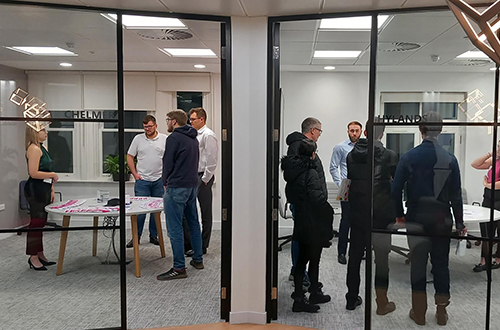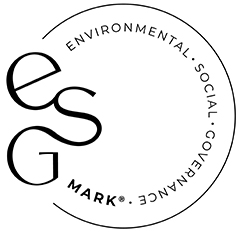Welcome to the December edition of our monthly VAT update, including a selection of news and updates relating to the world of VAT.
TOMS: changes afoot?
When Great Britain left the EU there were significant changes to the Tour Operators Margin Scheme (TOMS – but this can also apply to businesses organising conferences and events).
TOMS exists primarily to change the normal place of supply. Pre-Brexit, without TOMS, a UK business selling trips to 14 EU member states, would be required to register in 14 member states.
TOMS also saw the VAT due on those trips being calculated on the profit (hence margin scheme). Trips outside the EU were zero-rated.
Since Brexit, as Great Britain is no longer in the EU, trips to EU member states are zero-rated, with only trips within Great Britain being subject to VAT on the profit.
Europe is slowly waking to this advantage that Great Britain has. Germany and Croatia have taken unilateral action. Germany will require non-EU businesses to register for German VAT to account for supplies made there in 2023. Croatia has already enacted this rule.
It would seem an EU Commission study is underway with a proposal of adaptations to TOMS (already seen as unfit for purpose in 2021) due next year. However, as seen with Germany and Croatia, this may be overtaken by individual member states taking action.
Businesses involved in making such supplies should ensure that they are aware of the obstacles to their operating model. The solution of registering for VAT in an EU member state is not to be taken lightly as the regulations require that a business is established in the EU before it can register for TOMS so will may create significant ‘local’ costs.
Transfer of a Going Concern consider all angles
Transfer of a Going Concern (TOGC) treatment for a commercial property deal provides both cash flow and cash savings. Cash flow as there is no VAT due on the property (even if opted to tax by the seller) and the Stamp Duty Land Tax (SDLT) is reduced as this is calculated on the gross sale value.
However, bear traps abound both in terms of deadlines for required conditions to be met and also making sure that all aspects of the deal are understood.
A recent example: a taxpayer had opted to tax a commercial property used as offices. There were several tenants but the whole property was not let. This in itself is not a barrier to TOGC treatment. HMRC says that ‘insignificant’ letting is not a going concern, but case law has pointed to insignificant being a cupboard whereas a room (even if only one of 20) is not insignificant.
However, the issue here was the buyer and the buyer’s relationship with one of the existing tenants. Due to the value of the property, the buyer being associated to this tenant and the tenant’s business activities being almost wholly exempt, option to tax anti-avoidance regulations applied. This meant that the option to tax that the buyer needed to make as one of the TOGC conditions was dis-applied (and there’s a whole article about whether this would be just for the office of that tenant or the whole property). Either way the dis-application meant that the buyer could not issue an Article 5(2B) notification which confirms that the buyer’s option to tax will not be dis-applied. As HMRC sees a Article 5(2B) notification as a key condition of TOGC treatment, VAT was due on the sale (and at least a proportion of that VAT would be irrecoverable due to the dis-application).
The above illustrates the need to understand all the aspects of a deal, especially if you are the buyer. If TOGC is not available and VAT is due is the reason for TOGC treatment being disallowed also going to generate a cost in terms of irrecoverable VAT.
But is there an option to tax in place?
Where there is a potential for a TOGC it is often a point that the seller does not hold confirmation from HMRC.
In the time between the last VAT news and this, HMRC opened and closed a consultation about speeding up the option to tax process.
The first proposal from HMRC is that it will no longer issues letters to acknowledge receipt of a postal notification. This means that unless the option to tax is sent by email (which generates an automatic response from HMRC) there will be no evidence sent that HMRC received the submission.
The second proposal is that HMRC will no longer respond to written requests for confirmation that there is an option to tax (OTT) on a property. Some may argue that, given the time it takes HMRC to currently respond to such requests, this proposal is already policy. However, HMRC has said that it will respond if it is ‘likely’ that the option was notified more than six years ago.
If both proposals are enacted then we would strongly recommend that notifications are made by email and the automated response along with copies of the original submission forms are kept as permanent documents by the business. So there’s a strong possibility that in five years’ time there may be deals where the seller’s unsure if they posted an OTT notification to HMRC and HMRC refusing to confirm if they received it.
VAT threshold freeze
The only VAT issue mentioned in the recent Autumn Statement was that the current VAT thresholds will remain until at least April 2026. By then the thresholds will not have changed for nine years.
At £85,000 of taxable turnover (not profit), the threshold was by far the highest, pre-Brexit, in the EU. Many EU member states have very low or no threshold for VAT registration. The freezing of the figure for nine years is the government’s way of bringing more businesses into the VAT world and thus increasing VAT revenue without changing the VAT rates.
There are two key considerations:
- The first is the VAT definition of a ‘taxable person’; and
- The second is the concept of ‘taxable turnover’.
In VAT, a taxable person is a person (individual, partnership, corporate entity or other entity) that is or is required to be registered for VAT under the Value Added Tax Act 1994. It will include all business activities undertaken by that individual, partnership, corporate entity or other entity.
Taxable turnover relates to supplies that are subject to VAT (including supplies at the zero-rate). Supplies that are exempt are not taxable so do not count towards the threshold. For service providers you also need to understand the place of supply rules which can result in a supply being made where the recipient belongs (most commonly business to business supplies). Where this is outside the UK, it is outside the scope of UK VAT. This not taxable turnover for the UK supplier, but that would be taxable if seen as made in the UK, the supplier usually registers for VAT because it can reclaim UK VAT incurred in making these supplies.
Take the example of an individual IT consultant who also lets out a residential flat. For VAT, the consultancy is taxable (if all his customers are in the UK) but the rent is exempt. So if the consultancy turnover exceeds £85,000 he has to register for VAT but, due to the exempt rental income, may find that he is unable to reclaim all the VAT incurred by him in his business activities.
On top of this, businesses having to register for VAT will also need to be able to keep their records and submit their VAT returns digitally under Making Tax Digital (MTD) rules. Rickard Luckin can assist in determining if you need to (or will benefit from) a UK VAT registration, or need assistance with MTD issues.
And so this is Christmas
And what have you done? Well, to take full advantage of zero-rating, I hope you’ll be serving up Mega Marshmallows to your guests to roast over the yule log, as well as:
- Making sure you’ve signed up for MTD to make your VAT return submissions and moved over to CDS for both your imports and exports
- Taking steps to agree your partial exemption special method with HMRC before the end of your p/ex year; and
- Booking in a VAT review with Rickard Luckin to ensure you’re meeting your obligations and taking advantage of whatever VAT opportunities are available to you.
So you can rest assured and have a peaceful, happy holiday with best wishes from the Rickard Luckin VAT Team.
This article is from the latest issue of our VAT newsletter. To receive future copies of any of our newsletters directly to your inbox, please visit our preference centre to register your interest.
If you have any questions about the above, or would like more information specific to your circumstances, please enter your email address below and we will get in touch:













